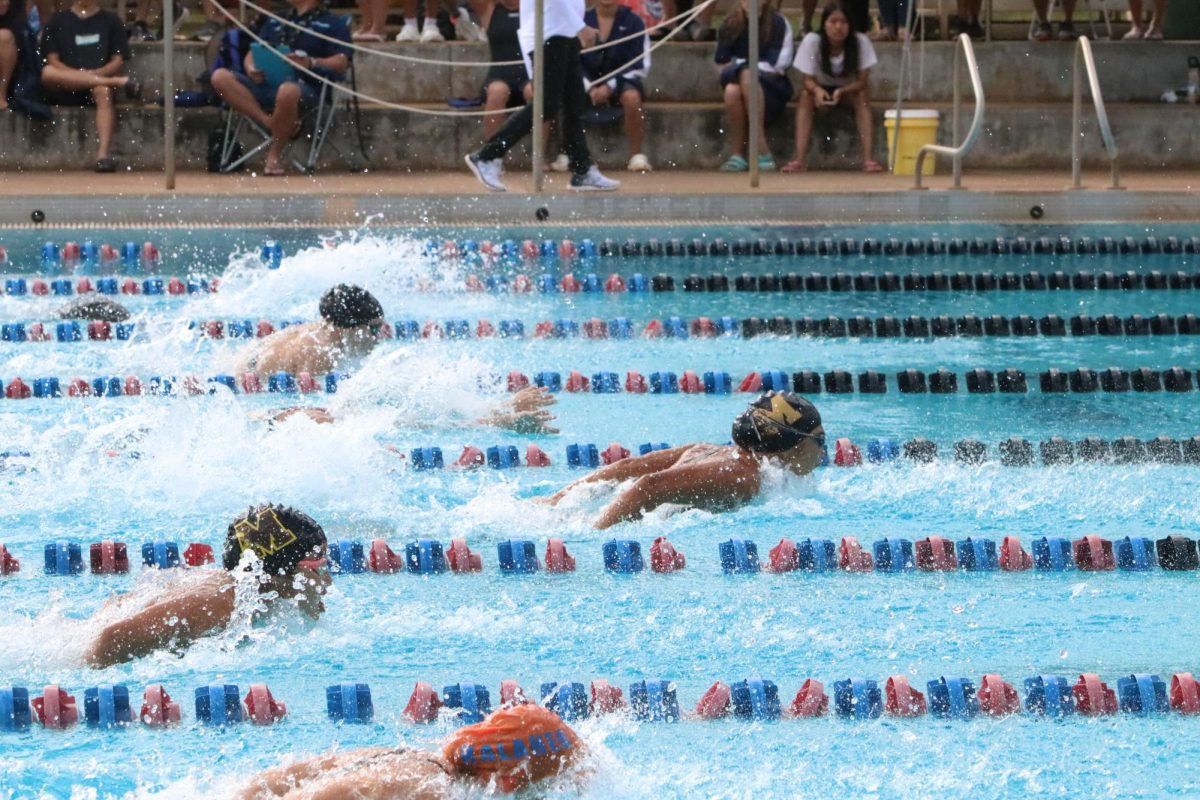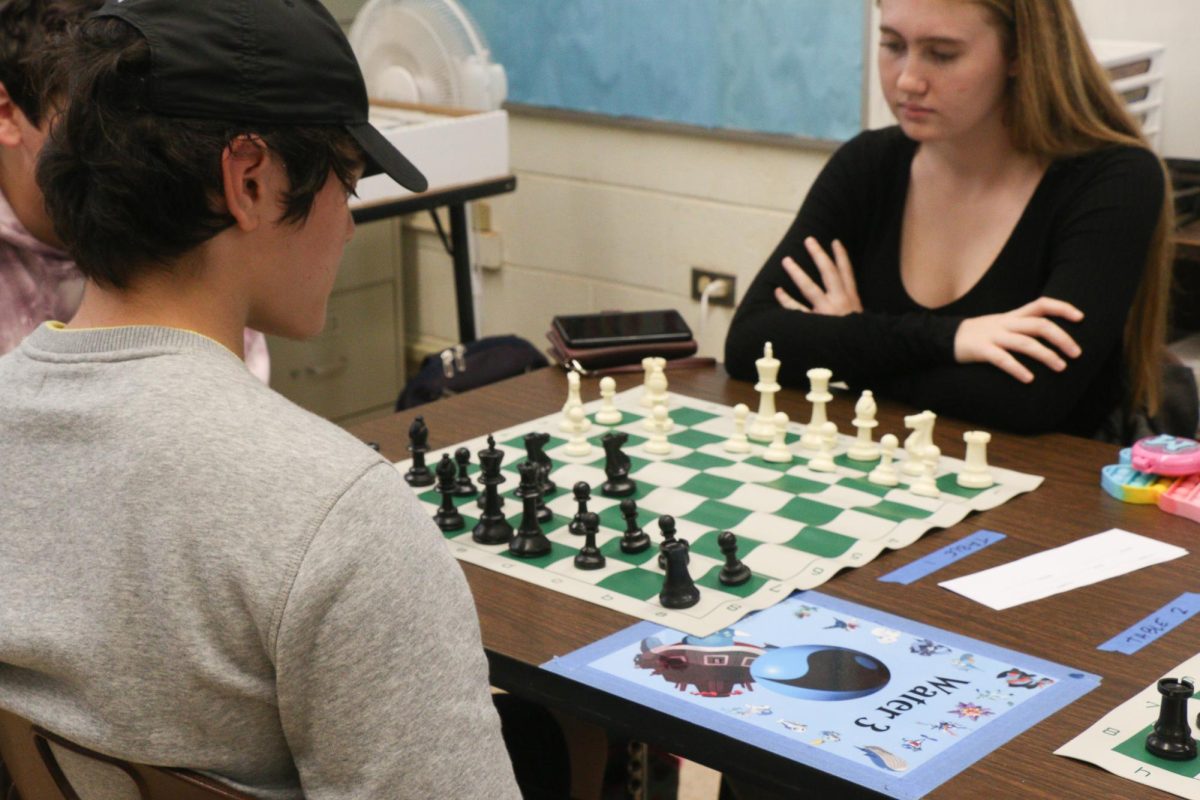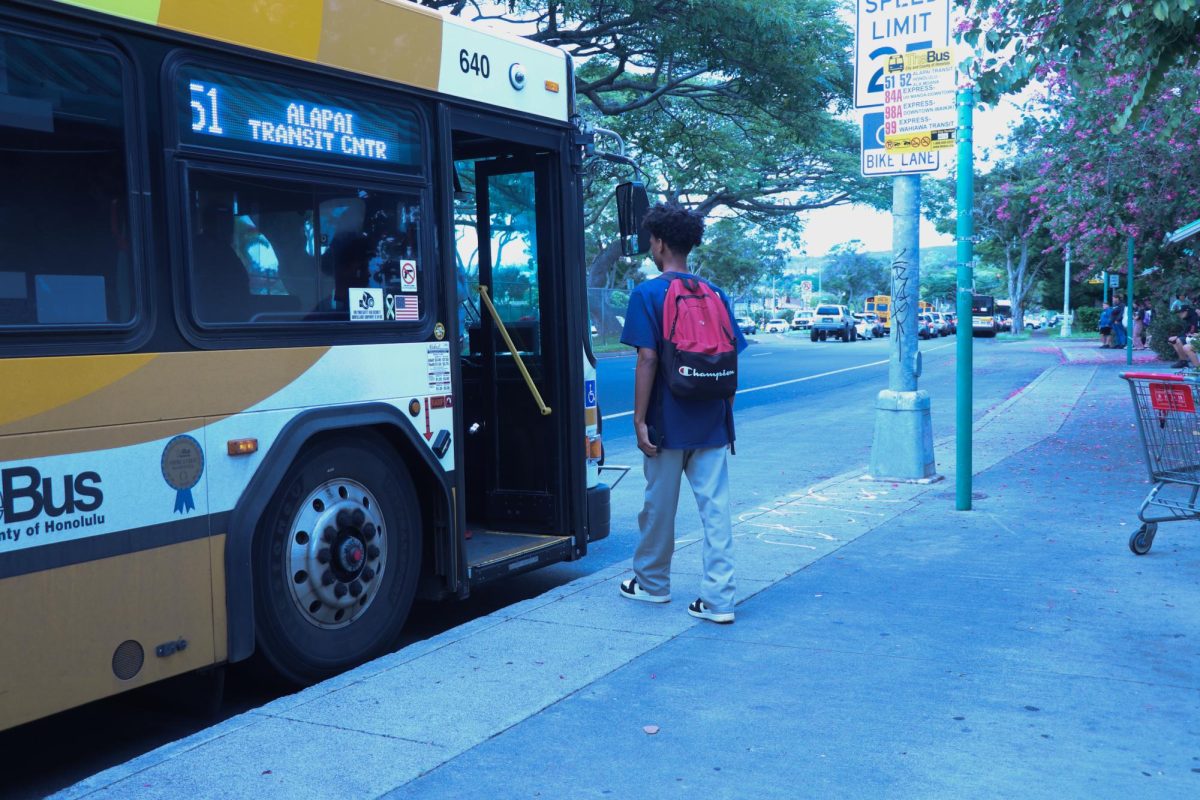http://vimeo.com/89345238
Episode One: Dr. Ireland debunks the myth around chewing gum. Have another idea for Doc Ireland to cover? Submit it here.
For more episodes click here.
Listening to Music
By Harlie Bates-Hudgin
[email protected]
Every classroom in any given school has multiple students who are deaf to what goes on around them because of the use of musical devices. For several students, this may be a way to ignore their surroundings because they don’t care about their grades or future, but for others it is a way to “study.” The students think that by listening to music their concentration will improve. The harsh reality is that listening to music is no different from ignoring everything that the teacher is saying or doing.
The Department of Education has banned the use of electronic devices for many schools for a reason. Their rationale for this decision is precisely why students listening to music while studying don’t benefit from the action: electronic devices are only distractions in the classroom. The quality of classwork, homework or tests is decided merely by the determination of the student. Students who listen to music while they study could be procrastinating, and everyone knows how much work gets done then – none. Other students may get their work done, but when they’re doing it they aren’t really listening to the music. It fades to the background, and ends up being ignored. These students might as well not be listening to any music at all. A distraction is all that music has, is and ever will be to those who are preparing for a test.
Source: Chegg Blog
Focusing on One Subject
By Harlie Bates-Hudgin
[email protected]
Many students believe that if they study by focusing primarily on whatever they will be tested on the following day, they will do better. Of course they absorb more information than if they spent time going between other subjects, but it isn’t the best way to study. Students should take time between everything they study for. Take out all the material they need to study and spread it out. After 15 to 20 minutes, go from the initial study material to the next, from the second to the third and so on. More students will find this way of studying beneficial.
Exams may be on different days, may even be weeks apart, but that’s all the more reason to study everything together, to multitask. The more time a student has to study the material before a test, the more they can remember when they actually have to take it. When students study one subject at a time, they burn out quickly. Afterwards, they won’t have the energy to really memorize the material they need to know. In order to prevent that, students should study multiple subjects together. This will ensure a better grade on their tests overall.
Cramming
By Jesika Henson
[email protected]
Cramming is something that we are all familiar with. It is a highly recognized study method and universities have even provided how-to guides on it. Despite being able to store the information just long enough to pass a test, according to Oxford Learning, “When it comes to long-term remembering, it’s utterly useless.” The information that is retained during that time is “quickly fleeting” due to the fact that it’s stored in the short-term memory section of the brain and, as stated by Onward State, “what goes in comes out just as fast.”
Also, a student is prone to losing sleep while staying up to study, which is more detrimental to their exam performance than not studying at all. The brain works at a slower pace so they forget even the material they lost sleep for.
Cramming, even though implemented and recognized by many, isn’t truly beneficial to students.
Sources: Oxford Learning, Onward State, S2S Community
Chewing Gum
By Lauren Barbour
[email protected]
We’ve all been tempted, studying for that big final or the test that could make or break our grade, to buy into the test-taking myths that have persisted throughout the year. However, somewhere in the back of our minds, we’ve all known it to be a long shot, right? What if that weren’t the case?
As it turns out, chewing gum before a test may actually improve performance, with limitations. While chewing gum can stimulate the brain enough to help during an exam, it only lasts a short while, about 20 minutes. If you do find yourself resorting to this though, make sure to stop chewing before the test actually starts. And not just because it’s against the rules – chewing while trying to think can detract from concentration.
However, let’s look at this realistically. If it was really such a solution, there’d be a lot more hype around it. In the end, chewing gum is no definitive way to success and it’s up to a student’s own diligence to do well in school.
Source: The Washington Post
Drinking Redbull
By Katherine Ozawa
[email protected]
Exam week is one of the most feared periods of time for students everywhere and they have developed many methods to survive it. One of them is drinking one or multiple energy drinks, such as Monster or Red Bull. These drinks have reportedly been shown to increase concentration and alertness and reduce fatigue. Most of these effects come from only two out of the many ingredients in these drinks: sugar and caffeine.
And while caffeine can increase alertness, it is an addictive substance and needs to be consumed in moderation. If it isn’t, side effects such as anxiety, insomnia and irritability can occur, as well as make it difficult for the user to focus on the task at hand. So while drinks like Red Bull accomplish the task they’re advertised to do, the pay off is hardly worth it. A good substitute for energy drinks are beverages like tea and coffee. So, open your textbooks and good luck. You probably have a long night ahead of you.
Sources: PubMed, Quora, College Net, The Student Room







